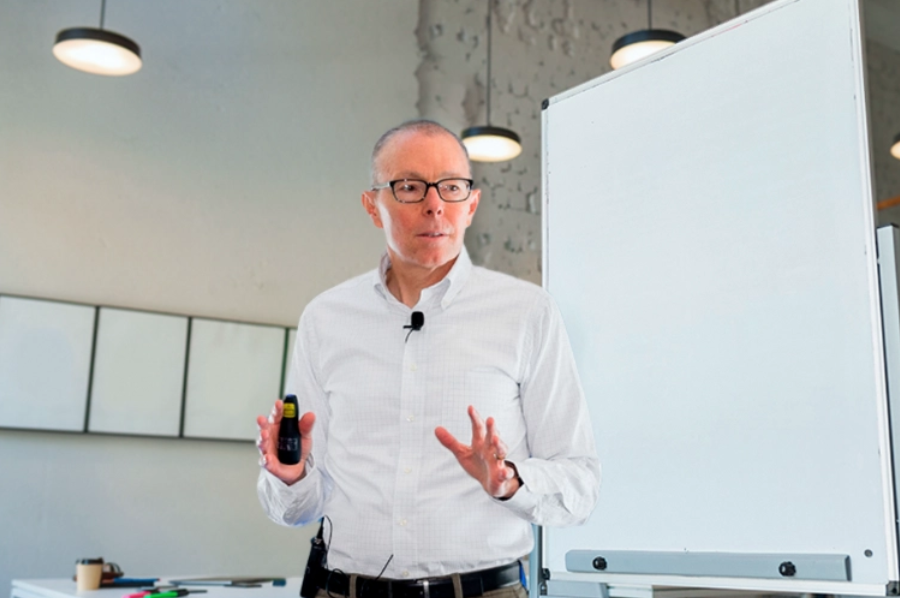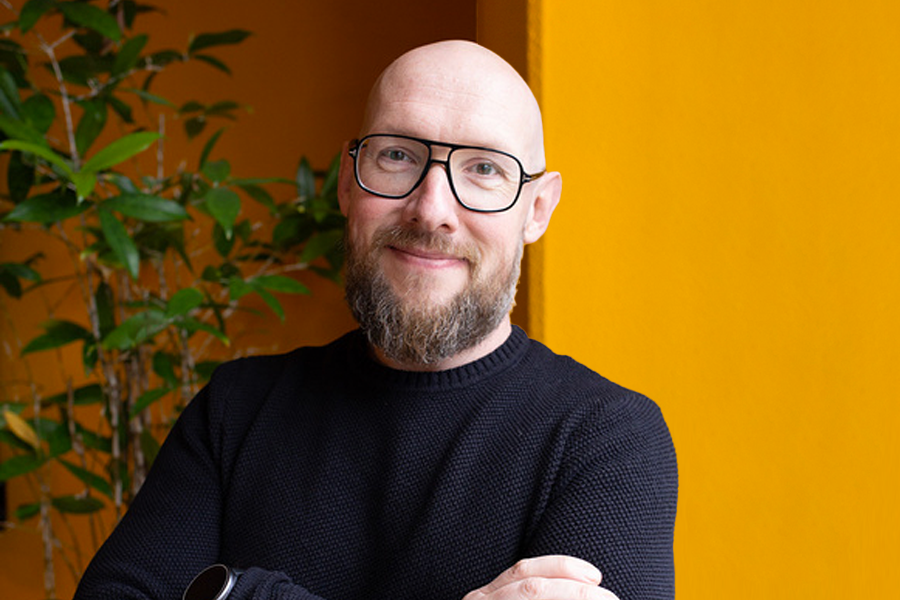Scientific insights on learning by Will Thalheimer

“Spaced repetition, retrieval practice and learning in the right context are some of the best researched elements in learning.”
For learning and training the time has really come to use scientific insights in their field. We organised an exclusive masterclass for 15 participants with Dr. Will Thalheimer, who knows better than anyone what is really effective and what is not. I had the privilege as an account manager to attend.
When I got the chance to participate in the masterclass by Will Thalheimer, I considered myself lucky. Made possible by aNewSpring, a number of learning professionals, my colleague Michiel and I were invited to attend the session on ‘Learning Sciences’.
An interactive and instructive session in which different learning methods with scientific research were compared and discussed. All focused on developing effective ways for learners to learn, remember and apply.

Customer Success Manager
Michiel helps customers to make good use of the platform in terms of content. Didactics and technology come together very nicely in his role, so I've asked his opinion and interpretation of this masterclass.
The three most important subjects of the Will Talheimer masterclass
- Align learning with the performance context
- Retrieval practice
- Spaced repetition

Interview with Pascalle Hoevenaars
What were your expectations prior to the masterclass?
Actually none, but I did have a goal. I was curious what new insights he has that we can use in becoming even better at advising customers, improving our product and certainly also within our organisation itself.
According to Will Talheimer, important aspects in learning are ‘spaced repetitions’ and ‘retrieval practice’.
Looking at aNewSpring and its use, what tip would you give to customers?
Learning in the right context contributes to effective learning. By repeating specific knowledge at the right times, retention increases significantly. A valuable tool to accomplish this is the MemoTrainer retention tool in aNewSpring.
What aspect of the masterclass do you think is often neglected in the development of a learning journey?
Performance context: what does a person need in order to do the job well/better? And is learning in a classroom, behind the computer or on the work floor always the best solution?
When it comes to remembering theory, this seems to work well in the same location where you learned something.
How can this be dealt with when online learning can be done at any time and place?
The learning journeys that are made should be done or followed ‘on the job’ as much as possible. Probably also in small portions, so that you can immediately apply what you have learned and move on to the next thing.
“In the short term, there’s too much attention paid to knowledge transfer and testing it. In the long term, there’s too little attention paid to retrieving th.e right knowledge and applying it”
Another part of remembering knowledge from a training course consists of two components; the design of the training and the follow-up. What quick wins would you recommend from this?
What we as CSMs often see is that, in the short term, a great deal of attention is paid to knowledge transfer and the testing thereof. But in the long term, the ability to retrieve the right knowledge and the application thereof is fairly neglected. This could be greatly improved with the ‘retrieval practice’ method or the MemoTrainer on our platform.
Sharing the right context is also a factor that helps with learning, what can help to apply this effectively?
By putting what is to be learned in context, it is often easier to understand and remember, which makes it easier to apply in practice. It has also been shown that what is learned in context can be retrieved most quickly in that context. So, learning-on-the-job or ‘workplace learning’ results in a much higher learning efficiency and effectiveness.
The session also looked at online learning, including whether e-learning works.
Will explained that in some cases it can actually achieve the best results, why is that?
If you have to choose between e-learning and classroom (online) and you keep the methods the same, it makes little difference. If you mainly focus on the knowledge part and you apply different learning methods, the results for e-learning are much better.
A little gimmick during the master class was when you can best answer the questions asked, immediately, after an hour or at the end.
What was the answer again?
I will wait with that answer!
Looking back on the master class, what would you urge every reader to do from now on?
Do an interview with people you are designing the training for. What keeps them occupied and what do they really need? Sometimes managers draw conclusions about what needs to be learned, but that is not the employee’s needs or it is not necessary to increase performance.
What lesson did you learn from the session for yourself and will you apply it more?
I recently held a workshop on blended learning. In addition to asking participants even more questions, I especially like the direct involvement (more intrinsic motivation) of participants by asking them what they are doing or what they are struggling with in relation to the topic.
Thank you, Michiel. That gives a nice insight.
What was the best moment to give the answer to a question?
More time between the question and the answer and preferably with feedback!
.png&w=3840&q=100)
Review by Johanneke Cromwijk
One of the participants during the master class was Johanneke Cromwijk, she works as a project manager at AcademySuite. She experienced the session as follows:
“Wow, what an experience! Attending an interactive and scientifically well-founded master class by ‘learning guru’ Will Thalheimer with a number of other learning professionals. You don’t get that chance every day.
What I found most interesting and what I got most out of were the surprising insights. These are the ones that have stayed with me the most. Especially the insights I had never read about before. Take the structure of your teaching material: did you know that it is better to break subjects down into small pieces that you keep coming back to, then to cover them in one chapter?”
“The masterclass was full of scientific knowledge”
“Not only the new insights were interesting. Revisiting old knowledge is just as important. For example, are you familiar with Kolb’s learning style theory? You know: the one about doers, dreamers, thinkers and decision-makers? Probably a superfluous question, because who doesn’t know it? A fun fact from Will Thalheimer: studying according to your so-called learning style does not improve your learning performance at all. So, keep paying attention to ‘scientific’ sources.
So, there is plenty of theoretical knowledge! What also made the master class very interesting for me was the interaction with other learning professionals. Because of the small scale of the masterclass and all the interactive assignments, quite a few examples came up. Nice to get to know new people in this instructive way and to learn with and from each other!
What am I/are we going to do with this? The masterclass was full of scientific knowledge. Now we also have our own Brain Learning Model at AcademySuite. The first thing we are going to do is compare the knowledge we have gained with the principles of our own model. Thereby, we can further perfect and optimise the development of our e-learnings! Thanks for this refresher!”